Betsy Revell and Marie Mackintosh on EmployIndy and Modern Apprenticeships
Key Points
-
Programs like EmployIndy’s modern apprenticeship and Accelerate Ed provide structured, supported pathways for students to gain real-world experience and college credits simultaneously.
-
Strong partnerships with businesses and community colleges are crucial for creating meaningful work-based learning opportunities that align with industry needs and help students transition smoothly from school to career.
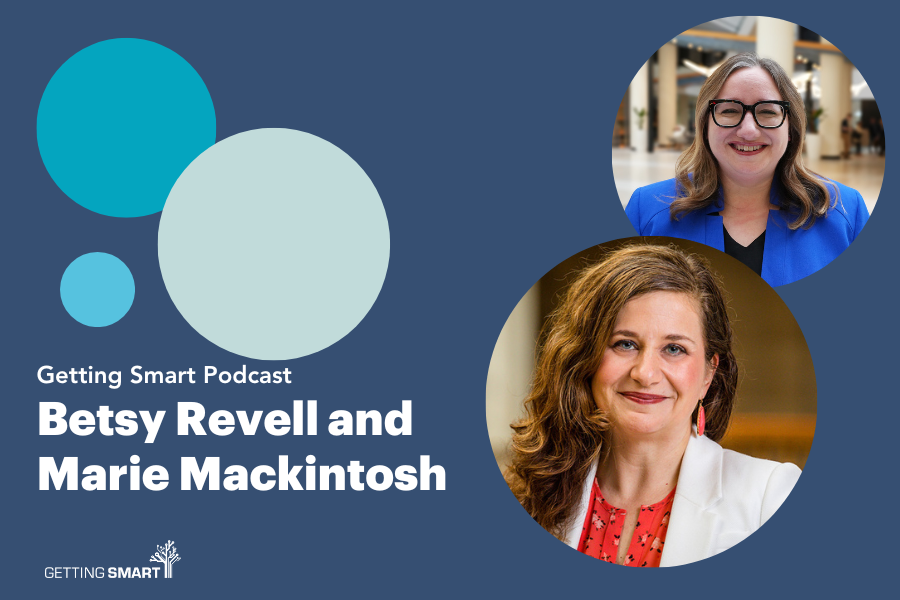
In this episode of the Getting Smart Podcast, Shawnee Caruthers is joined by Betsy Revell, Senior Vice President of Career Connected Learning, and Marie Mackintosh, President and CEO of EmployIndy. They discuss the organization’s efforts to provide Indianapolis students with access to tech apprenticeships. The conversation highlights EmployIndy’s role as an intermediary, bridging the gap between education and workforce needs, and the importance of creating equitable pathways for all students. Betsy and Marie share insights on the development of the Indy Modern Apprenticeship Program, the significance of work-based learning, and the collaborative efforts with partners such as Ivy Tech Community College and TechPoint. They also explore the challenges and successes of their programs, emphasizing the need for business and community engagement to support student career readiness.
EmployIndy is a critical part of the Indiana Accelerate ED cohort, supported by the Bill & Melinda Gates Foundation. Accelerate ED is built on the idea that high schools can provide early access to quality higher education in ways that incorporate work-connected learning and have long-term benefits for students. This initiative helps state-based groups plan and build accelerated pathways between K-12 education, postsecondary education, and careers.
Outline
- Introduction and Overview
- EmployIndy’s Role and Partnerships
- Accelerate Ed and Equitable Pathways
- Pathways in IT and Cybersecurity
- Student Experiences and Community Impact
Introduction and Overview
Shawnee Caruthers: You’re listening to the Getting Smart Podcast. I’m Shawnee Caruthers. Today we’re joined by two members of the EmployIndy Team: Betsy Revell, Senior Vice President of Career Connected Learning, and Marie Mackintosh, President and CEO, to discuss the important work they are doing to provide Indianapolis students with great access to apprenticeships in tech. EmployIndy is a critical part of the Indiana Accelerate ED cohort supported by the Bill and Melinda Gates Foundation. Accelerate ED is built on the idea that high schools can provide early access to quality higher education and ways to incorporate work-connected learning that have long-term benefits for students. This initiative helps state-based groups plan and build accelerated pathways between K-12 education, post-secondary education, and careers. Marie and Betsy, welcome to the podcast.
Betsy Revell: Thank you for having us.
Marie Mackintosh: Yes, thanks.
Shawnee Caruthers: We’re so excited to be here. I really appreciate it. I want to first kick it off by just understanding what EmployIndy is. Marie, can you tell us about that?
EmployIndy’s Role and Partnerships
Marie Mackintosh: Sure. Yeah, I’d be happy to. As you stated, EmployIndy is an intermediary, and that is a word that is being used more and more these days to describe organizations like ours that sort of sit in the middle between a lot of different community partners, businesses, education partners. The way that we came into being is because we serve not only in a nonprofit space but also as the workforce board for Indianapolis. We receive a lot of different funding from a lot of different people to essentially ensure economic mobility for everybody in the Indianapolis community. The way that we do that work is by investing some of the funding we receive into community partners like Indianapolis Public Schools and some of the other folks we’ll talk about today. But then also we serve as this convener and connector to try to help businesses, students, parents—all the folks—understand how they might be able to get connected to good opportunities to help them find the next step in their pathway, in their lives, and their career.
Shawnee Caruthers: And as the intermediary, because you said that there are more and more coming on the educational landscape, we know that one of the struggles that sometimes intermediaries have is maybe connecting with the local school district. So what are some ways that you all did that to ensure that the local school district really understood the value that you all could bring to the students?
Marie Mackintosh: It’s been a journey, I would say, over more than a decade or two before my time at EmployIndy. We were formed in the 1980s as an entity, and probably in the early 2000s we started a program called the Jobs for America’s Graduates Program. It’s a nationwide model, but it was started in Indianapolis with some funding from the state to help young people who were really struggling with what they were going to do when they graduated from high school. They might have even been in danger of dropping out. We helped them get connected to resources in our community, and that initial seed of partnership with just one high school at the time has now burgeoned into us having relationships with most of the high schools in our community. We have 38 high schools in Indianapolis, and our team is still growing relationships with some of our smaller schools, some of our charter schools, but we are excited about how many more partnerships we have with both public and increasingly even private schools in our community.
Accelerate ED and Equitable Pathways
Shawnee Caruthers: And speaking of partnerships, you all do this work in conjunction with the Accelerate ED initiative with the Bill and Melinda Gates Foundation. How did that come into play?
Marie Mackintosh: Yes, that was an exciting opportunity for us. The way that we learned about it was through our partners, the Education Strategy Group consulting firm. We were doing some work with the New Skills Ready Network project. There are all these projects that are really all centered around creating more equitable pathways for young people in our communities. In that broader project, EmployIndy is serving as a site lead, and we were bringing together a lot of different partners to think about how you transition from secondary to post-secondary, how you infuse all education opportunities with work-based learning, how you ensure the curriculum is really rigorous that students might be going through so they’re prepared for whatever they want to do when they graduate from high school. And how do we do that with a lens towards equity? This group had been working together for a number of years. Then this beautiful opportunity came from the Gates Foundation for Accelerate ED where we could go deep on a certain pathway and really work on how you create a blueprint for building a new pathway that has all the things we would want to see in it, like the most perfect sort of pathway development that you could expect so that hopefully we can get more young people engaged in getting into better opportunities.
Shawnee Caruthers: Yeah, and before I get into those specific pathways, Betsy, one of the things Marie mentioned was around equitable pathways. How do you define what an equitable pathway is for a learner?
Betsy Revell: That’s a good question. So I think the way that I would define it is it’s a pathway that is accessible by all students who want to be a part of it and that they’re all made aware of it in ways that are relevant to them. It’s not necessarily focused on the items that would prevent them from being participatory in it. For example, if a pathway would have certain transportation requirements, let’s make sure that those supports are in place to make sure those transportation supports are there so they can participate effectively. So it’s ultimately peeling back the layers of the onion that would prevent somebody from being successful. So those life things that prevent them from being successful while positioning the information in front of them in the correct ways.
Pathways in IT and Cybersecurity
Shawnee Caruthers: Yeah, and you saying it needs to be personalized and it needs to be also pathways that feel relevant to what industry needs. Marie, why beyond the ever-changing technology landscape, why IT and cybersecurity?
Marie Mackintosh: Yeah, when our team was looking at some of the questions related to this project, Accelerate ED is about how do you help literally accelerate the education of a young person so that they’re achieving hopefully an associate degree but a lot of credit by the time they’re finishing a 13th year if you will post-high school, right? And when you look at the opportunities that exist in our community, one glaring opportunity is how much demand there is for professionals in the coming years. So we partnered with our friends at TechPoint, another intermediary more focused on economic development in our community, and they have a goal of getting 41,000 tech workers into good jobs in Indiana by 2030. We need that many across the state to remain competitive from TechPoint’s perspective. When we looked at the pathways that were happening in high schools, the numbers were very low, less than a couple hundred I think at the time. So it seemed like the perfect opportunity for our team to dive more deeply into an area where we knew we needed to grow a lot. The goal is to try to get about 3,000 high school students rolling through these pathways across Indiana, and we started small in Indianapolis.
Shawnee Caruthers: And Betsy, is that where the Indy Modern Apprenticeship Program now comes in to begin to provide those links and the opportunity for students to try things?
Betsy Revell: Yeah, so I think that there’s two things that come into that space specifically. The first is our work-based learning continuum called Talent Bound, which is our employer-facing career-connected learning intermediary strategy. So how we help businesses be ready to actually participate in work-based learning activities and meeting them where they are in that process because not all businesses are ready to do that. We’ve really defined that down into 12 different steps within the continuum, defining it in things such as a talent talk or coming in providing mock interviews for a day so that we can pull businesses through that space so they can be stronger partners as we get into the more intensive work-based learning activities like modern apprenticeship. The cybersecurity pathway and blueprint were being built at the same time as we were building the modern apprenticeship pilot. With the pilot, we focused primarily on industries such as business IT, healthcare, and the like. As the IT pathway was being built, we were setting up the structures of modern apprenticeship so that as students got to the point that they were eligible to apply for the modern apprenticeship program, they would be within the pathway. They would understand what type of role they would potentially want to be a part of, so we could overlay the two between each other. One of the Accelerate ED pathway schools is Indianapolis Public Schools. They’re one of our core partners, and they support that cybersecurity pathway. Over the next year, their students will be far enough along in their program that they will be able to start applying for the apprenticeship program or requesting other work-based learning activities such as internships and the like.
Student Experiences and Community Impact
Shawnee Caruthers: Can you speak to the student experience that they’ve been having so far in the apprenticeship program?
Betsy Revell: Certainly. Our apprentices have a three-year experience that starts in their junior year of high school. They are an employee of the participating company on day one of their apprenticeship so that the employers hold responsibility and accountability for providing a good experience for those students. Starting their junior year, they’re doing the initial year of work, a lot of exploration and understanding of the space of work. As they move further along in their apprenticeship, they get to participate in more and more productive work because they’ve built their skill sets. They’re also securing post-secondary credit and industry certifications through that three-year period. Our team wraps around them, providing those wraparound supports along the way as well as supporting their supervisors. So the supervisors know how to properly lead a high school student through a longer-term experience. We have various activities that we do throughout the year called MAP chats where we’re bringing everybody together to address a professionalism item or progress within their apprenticeship. They build camaraderie with each other, and we provide that same wraparound to our supervisors so they have a social network or professional network that lines up together as well.
Shawnee Caruthers: I appreciate the support, not just for the students but for the industry partners as well, and making sure that everyone is aligned and on the same page. That’s great. As part of another layer of the different relationships that you all have, that surround the Ivy Tech Community College and CareerLink, what is that relationship?
Marie Mackintosh: I’ll speak to that one. Ivy Tech Community College is a unique community college in the space of all the community colleges across the country because they are a statewide structured college. They have 17 or 18, maybe more locations across the state, but they’re centrally organized through what we call the systems office. The systems team developed a few years ago the CareerLink teams on each individual campus. Their role, in my mind, is really threefold. The Ivy Tech CareerLink folks help students on campus who are already participating in post-secondary programming to get their connections to businesses to help them get connected to jobs, internships, that sort of thing at the community college level. They also have teams that go into the high schools, which is where we engage with them, and help students understand dual credit and how students can be prepared for the careers that are going to come as a result of whatever they’re studying. The third way that they’re involved is that they engage a lot of businesses to do a variety of different activities for the good of the entire community. The way that they involve us the most is with bringing students to the high school space, helping the students to better understand their options for careers as they look past high school into their transition to post-secondary. I think we’ve had something like almost a 30 percent increase in the number of students going after dual credit and really making it easier for them to understand how that could be packaged together to get a credential more quickly that is relevant in the workforce.
Shawnee Caruthers: Marie, as it relates to what you were just talking about with Ivy Tech Community College and CareerLink, and then Betsy, as you were talking about the Indy Modern Apprenticeship Program, is there a story that sticks out to either of you, something you’ll never forget that a student was able to experience as a result of either of those connections?
Marie Mackintosh: The one that comes to mind for me is recent. Betsy may have her own. There’s this young man, Akin Wale. He’s a great example of what’s possible with all of our partnerships. He was an IPS student who graduated, and during the course of his high school career, he did the modern apprenticeship program in IT supporting IPS, like supporting Indianapolis Public Schools with all of their IT systems. So he was helping with help desk support, getting paid to do that, gaining experience, and earning credits with the different dual credits he was taking for learning about IT. Then he graduated and moved to the IU Indianapolis School of Informatics to continue his programming. His pathway is going more of a four-year degree program. We don’t believe that without the intervention of MAP, without him being a part of that apprenticeship program, he might never have found his way into it and into that school of informatics. We shared that story with our community and TechPoint, the big intermediary that does economic development in the IT space. There’s a big awards ceremony they do every year for innovations in the tech space, and Akin was highlighted in that awards ceremony this past year. We were excited to get the word out to the IT community about what’s possible and how they can really leverage young talent in new ways.
Betsy Revell: Akin Wale is certainly our success story associated with IT pathways directly. What we hear from our business partners is that the reason they’re able to be successful in this work is because we wrap the supports around them as well to make sure that they’re moving forward in the process. What we’re hearing from a lot of our apprentices is that, as Marie stated, this is how they decided. They made a truly informed decision about what their next steps look like beyond their apprenticeship. So they’re making a truly informed decision about if they’re going to move on to post-secondary in a traditional sense, if they want to continue with the business and do lifelong learning. We see that as a huge win for apprenticeship because it is continuing to build skill sets within an industry in a truly meaningful way for these young people. It’s showing businesses that young people are equipped to do great things and can step up to the plate when they’re given the right opportunities to do so.
Shawnee Caruthers: For our ed leaders who are listening and they may have a similar situation where they have a really strong apprenticeship program, and then, like you said, they’re also trying to help that young person process what the next best step is. What are some ways and strategies that you all have utilized to help students figure that out? What are some processing strategies that ed leaders can try?
Betsy Revell: Some of the strategies that we’ve identified are how we can incorporate the world of work in and meaningful exploration early and often so that students are not waiting until high school to even think about what their pathway may look like. Work-based learning and career exposure can happen all the way down into kindergarten so that individual students are not only looking at their individual spheres of influence like what their parents or family members do or what they run into on a daily basis. Work-based learning and exposure is a critical component to career coaching along the way and can be done in age-appropriate ways. It’s not one or the other. They need to be done together in a sequenced way so they’re also being asked, “Did this help you make a decision? Do you like this? Do you not like this?” The decision about not liking something is just as critical as saying that they have found their individual path as well.
Marie Mackintosh: I have a couple I would add. I think when you’re thinking about what advice we could give to ed leaders about how they’re helping young people find that next step in their life, the reality is that when you look at the data, there are a lot of young people that are being left behind, falling through the cracks. There’s a very leaky pipeline, at least in Indiana, and I think ed leaders feel a tremendous amount of responsibility and accountability to make sure nobody’s being left behind. The way that we have always tried to address this issue is by infusing more and more opportunities for access to college. There’s a huge focus on college. The best advice I can give to ed leaders is to embrace your community partners who also want students to find their pathway to success and acknowledge that not all young people are going to find the same way and have lots of experience in how we can help young people have more exposure to lots of different opportunities. There’s a sort of strange dichotomy where we have to be either college or career, and we’ve set up the world in education in this way, and I think that is a missed opportunity. It’s very much a both/and. Young people are going off to college in a traditional four-year degree program, which in Indiana doesn’t happen that much anymore. A lot of young people are taking lots of different paths to get through some sort of post-secondary. But even if you’re traditional, you’re still going to try to get a job at the end of all of that. So how are we helping young people to just have a better idea of who they are, what they’re capable of, and what the potential might be for them at an earlier age? You can’t do that alone in a school environment. You need a lot more partners to engage, and you have to shift how you do school to make that more possible.
Shawnee Caruthers: Thinking through that tension, I think it’s just maybe an example of some challenges you all have been facing in this work in order to create some of the success factors that you’ve been able to have. What are some of the greatest obstacles that you all have faced in this work beyond just that tension of college and career?
Marie Mackintosh: The very first obstacle I think about in all of this work that we do, beyond that tension of college and career, is that businesses also have to change how they operate. They need to be much more thoughtful about the role they play and how they invest in early career talent and how they look at middle schools, high schools, and elementary schools as places where they can build relationships with the different leaders of those schools and the teachers within them to create the potential for more talent to thrive in our community in the long run. Businesses have to have a more defined role, and they have to invest more directly in the pathway programs for this to really take off appropriately.
Shawnee Caruthers: Betsy, what would you add to that?
Betsy Revell: I would say that the way a lot of these items functioned pre-pandemic versus now are very different. We continue to learn every day how we need to engage young people in the headspace that they’re in now. What worked before is not the approach that we can have now. We have to be very intentional in catching their attention and engaging them in a way that makes them feel valid and engaged and that it’s a possibility for them. To Marie’s point around the employer readiness component, there are a lot of businesses who want to be a part of it, but they do not know how. They are getting approached by so many different partners, so helping to translate all of this into the vernacular businesses understand, helping them understand what is accessible and what is easy, and how an intermediary can help them participate in this effectively in ways that will increase their employee engagement, reinvigorate their staff, and build their future.
Shawnee Caruthers: It sounds like although you all are doing work specifically around Indy as a state, it sounds like that’s something that they’re thinking of even at the highest levels. You all are working together across the landscape to make that happen. Are you all familiar with the Indiana GPS diploma? Does any of that work spill into what you all are doing, and how do those things work together?
Betsy Revell: Where it lands in the end, we do anticipate an increased need for businesses to participate in career-connected learning structures, strategies, and whatnots. We have to be prepared for helping the school to plan out what they believe will be a part of that as well as readying the business community in an effective way. So we’re already retooling how we are engaging with business and readying them, thinking about how we can move it faster, move it in a cohort-based manner, all those sorts of things, because that increased need is going to come into play.
Marie Mackintosh: Shawnee, when you were talking about the challenges we see, one of the realities of the work we do is that it takes years to really see progress in terms of systems change. The cycle of a high school class is 4, 5, 6 years when you’re looking ahead to post-secondary options as well. If you throw into that shifts in leadership, it made me think about how important it is to have a consistent plan regardless of who the leaders are. If entire community members, school districts, and business leaders are all on the same page, then shifts in leadership happen in certain spots, wherever they may be, it doesn’t really matter because we all know where we’re headed. For me, that is why state policy matters so much and why some of the work that’s happening at the Indiana Department of Education related to rethinking high school diplomas is so important. It’s a very hot topic in Indiana at the moment. I commend Dr. Jenner and her team for working to think about how high school should be changing given how fast 21st-century economies are changing and how fast technology is changing. We don’t want our students to be falling behind; we want them to be on the cutting edge. One easy way to do that is by making sure that they are engaging with the business community more often rather than less often. But that’s also the hardest thing to do because that’s really just not our culture. Big shifts have to happen from a lot of different communities for the GPS diploma to reach its full potential.
Shawnee Caruthers: I appreciate the way that you walk the student and think through that. And then, like you said, the need for everyone to be talking to industry and all the different players. As a result of the state work happening in Indiana, they were able to talk to parents and industry to determine what key characteristics matter for students. Some of the ones named around civic and financial literacy and communication collaboration are things we want for all learners. So it’s great that as a state, you all are thinking about that and intermediaries are included in that conversation, industry is included in that conversation. Marie, you mentioned the importance of policy. As we think about national policymakers and any advice we would give them about this work, about apprenticeship programs, or creating that seamless integration across the educational landscape to move work forward, what advice would you give to those national policymakers?
Marie Mackintosh: The advice I would give to national policymakers is that we should be thoughtful about how different agencies are working together, how they are all rowing in the same direction and not duplicative or, even worse, at odds with one another in terms of some of the policies that might be passed. When I think particularly about apprenticeships, the U.S. Department of Labor has rules on apprenticeships, and I think our team worried a little bit about that being too regulatory, like adding more complexity rather than less complexity. So I would say to our policymakers, you have a tough job. How do you create a sort of culture or system, a norm, where we are all striving to have really rigorous experiences for our students, and we all understand what that means to the point of Indiana drawing a line in the sand on the different characteristics of a graduate and what we’d be looking for as they prepare to go on to their next success? At the federal level, they really have to have that organized, and they need to do that in an elegant way that doesn’t create more regulatory issues for all the people trying to implement at the local level. That is a hard balance for our federal friends to find, but that’s what I hope they figure out how to do in both the partnerships with the Department of Education and the Department of Labor on some of this work-based learning work.
Betsy Revell: There is a need for intermediaries to help make these things move forward at a local level. As Marie referenced earlier, funding can move things or complicate things depending on how they have to be utilized and implemented. Being thoughtful about what is available, allowable, and incentivized through those mechanisms as well is critical. Intermediaries, if they’re not a member-driven organization like some intermediaries are, or a part of a state entity or something like that, funding can be very complex to help have the capacity to move that work forward.
Shawnee Caruthers: I appreciate you both walking through all the great work that’s happening in Indy around apprenticeships and the way that you all are thinking very strategically and holistically around what career-connected learning looks like and how to create the best opportunities for learners. Thank you for being with us today and sharing with our listeners.
Marie Mackintosh
Marie Mackintosh has served as President and CEO of EmployIndy since the fall of 2022. Mackintosh joined EmployIndy seven years ago and has led the implementation of several pivotal initiatives that collectively work to create economic prosperity across Indianapolis for all residents including the New Skills Ready Network Collaborative, Modern Apprenticeship, Talent Bound, Rapid Re-Employment Response, and the Good Wages Initiative. Through Mackintosh’s leadership, EmployIndy recently launched a new, three-year strategic plan focused on preparing students and workers for 21st century jobs through career-connected learning, access to career coaches, and equitable postsecondary options.
Mackintosh brings over 20 years of relevant experience to this role, having worked immediately prior to EmployIndy in various leadership roles at the Indiana Department of Workforce Development, in marketing at a global manufacturer, and in advising and academic affairs at Butler University, DePauw University, and the University of Kent in Canterbury, England. She holds an MBA from Butler University and a BA from Indiana University, where she graduated Phi Beta Kappa. She was named one of Indy’s Best and Brightest in 2017 and has served on numerous committees and boards for organizations that include the U.S. Conference of Mayors Workforce Development Council, Midwest Urban Strategies Consortium, Indy Chamber, Local Initiatives Support Corporation, Business Equity for Indy, Far Eastside Collective Impact Council, Near Eastside Innovation School Corporation, and IndyFringe.
Betsy Revell
As the Sr. Vice President of Career Connected Learning, Betsy Revell provides key leadership to initiatives focused on providing real-world work experiences with local businesses. These experiences lead to strong skills for the 21st-century economy, residents making informed decisions about their career paths and businesses gaining access to diverse talent pipelines. Betsy leads a team of professionals who facilitate various levels of career connected learning with education and community partners.
She holds a Bachelor’s degree from the University of Southern Indiana in International Studies. Betsy has also completed study abroad opportunities at Instituto Tecnológico y de Estudios Superiores de Monterrey in Querétaro, México and CEMETS Summer Institute at ETH Zurich to study apprenticeship structures and the TVET dual education system. Additionally, Betsy completed the National Career Pathways Leadership Development Academy.
Links
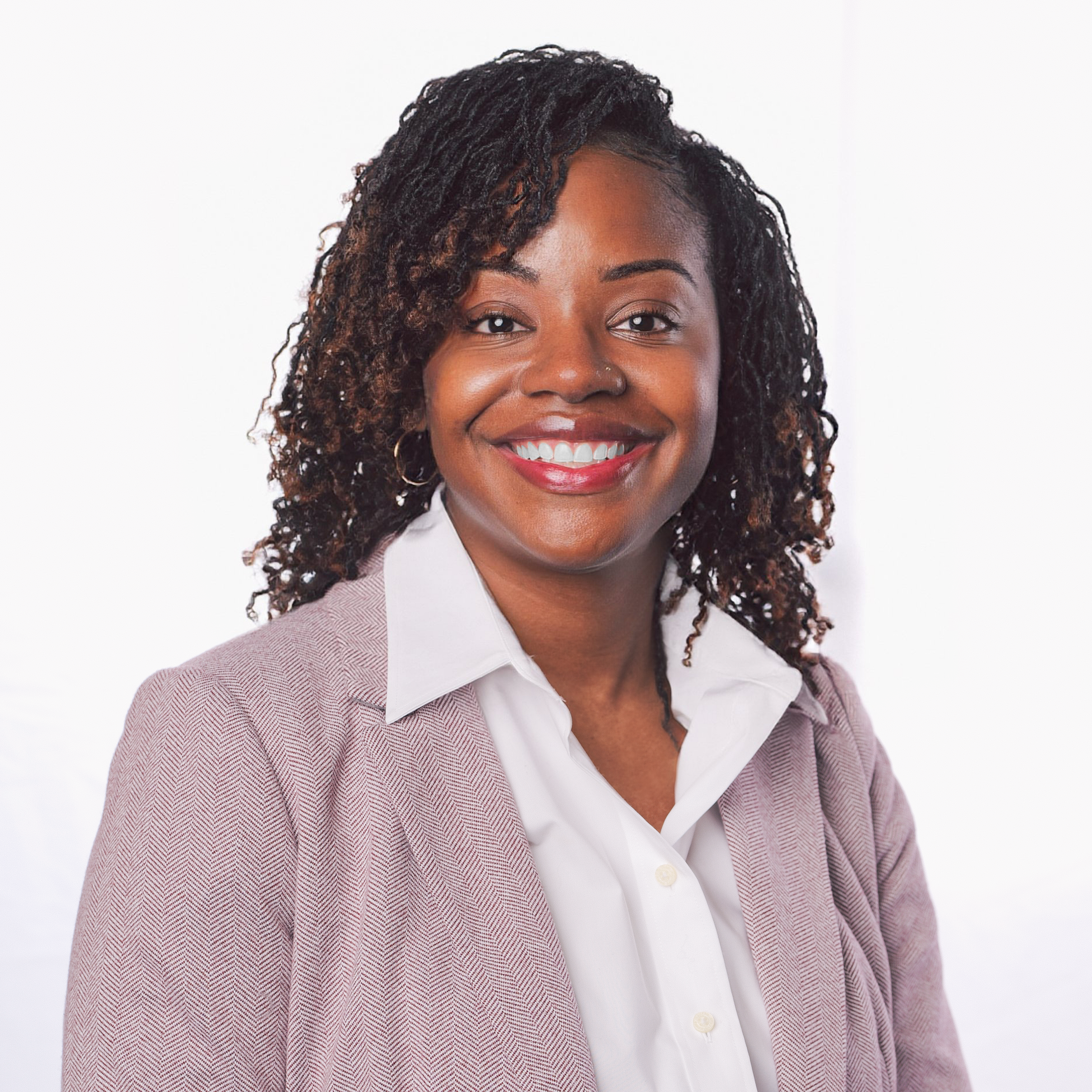


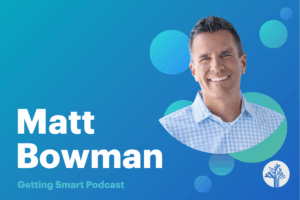

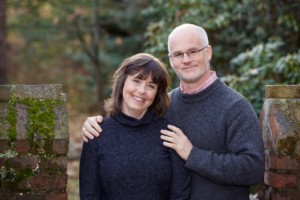
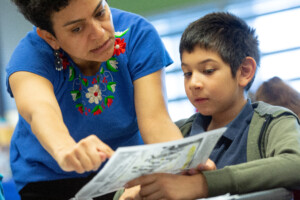
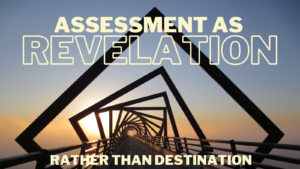
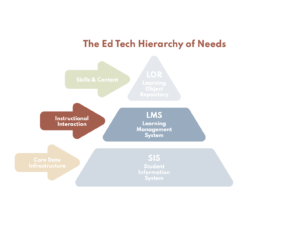
0 Comments
Leave a Comment
Your email address will not be published. All fields are required.